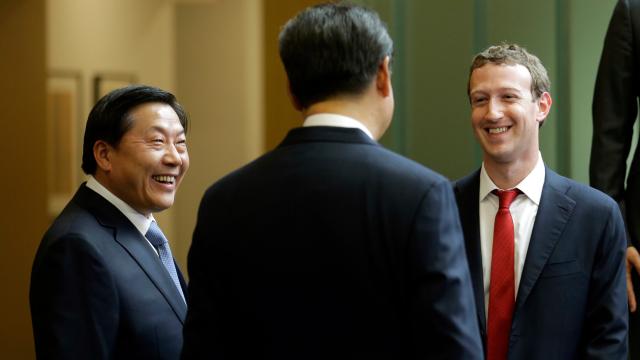Lu Wei, the former chief of the imposing Cyberspace Administration of China (CAC) and one of the primary architects of the mass censorship foisted on China’s estimated 700 million internet users, pleaded guilty this week in Chinese court to taking some 32 million yuan (about $US4.6 ($6) million) in bribes, the Associated Press reported on Friday, citing state TV broadcasts. Those state-owned stations broadcast only limited details of the case, though Lu stepped down from his post in 2016 and the next year became the target of one of the far-ranging anti-corruption probes ordered by President Xi Jinping.
Lu, a former staffer for the state-run Xinhua News Agency who also became the vice mayor of Beijing from 2011-2013, was a hardliner on censorship at the CAC who led crackdowns on Chinese social media sites like Sina Weibo and at times was even rumoured to be destined for even higher office, CNN reported. Lu is a proponent of the idea of “cyberspace sovereignty,” the idea that nations should have exclusive control on what appears on the internet within their borders, though he also rubbed shoulders with Silicon Valley CEOs like Apple’s Tim Cook and Facebook’s Mark Zuckerberg.
“China has always been very hospitable, but we can choose who enters our house,” Lu told reporters in October 2014, according to Reuters. “We could not allow any companies to enter China and make money while hurting the country.”
That same year, he claimed the Chinese government does not shut down foreign websites like Facebook, saying, “I have never used any of these websites so I don’t know if they have been shut down. But as for situations where some sites become inaccessible, I think it is possible… We have never shut down any foreign sites. Your website is on your home soil. How can I go over to your home and shut it down?”
However, Lu reportedly fell out of favour with Xi at around the time he lost his CAC role. He was expelled from the Communist Party of China earlier this year, and state media released reports in July stating he had been arrested and charged with accepting “a large number of bribes.” According to the South China Morning Post, an English-language daily based out of Hong Kong, Lu appeared in court on Oct. 19 in eastern Zhejiang province, where authorities accused him of using his power to enrich himself and others over the course of decades:
He was accused of taking advantage of his positions—and the power and status that came along with them—to seek profits for others on matters such as network management and promotions, the Intermediate People’s Court of Ningbo heard.
In return, Lu accepted bribes, either directly or through a third party, prosecutors said.
The court heard Lu’s crimes spanned his decades-long career at state news agency Xinhua, the Beijing municipal party committee and government, the CAC and the party’s Central Publicity Department.
China has an almost 100 per cent conviction rate—a near-perfect track record for prosecutors that even some government officials have admitted has become unfair and damaging to the credibility of Chinese legal system, according to the Washington Post. Forced confessions are reportedly rampant, and some limited reforms of the judicial system have largely not changed that.
So the arrest of any high-ranking official virtually guarantees that they will face conviction on serious charges, especially given the current political environment. Xi has launched a sweeping effort to purge corrupt officials and implement new guidelines of conduct in recent years, wary of the possibility corruption could spark a popular crisis of legitimacy—and likely to increase his own personal political power. In one of the more striking incidents, the Chinese head of international law enforcement cooperation organisation Interpol, Meng Hongwei, disappeared from the public eye in September 2017. Beijing’s Ministry of Public Security later disclosed he had been detained on charges of corruption, though Meng’s wife fears he is no longer alive.
As CNN noted earlier this year, it’s possible Lu was seen as abusing his power to prepare for future succession battles when Xi eventually leaves office, with official statements blasting him and his alleged “ambition” to an extent unusual even for disgraced officials:
In a withering broadside against Lu following his expulsion, the Party’s corruption watchdog said Lu “did whatever he wanted, commenting on central government policies with bias and distortion, obstructing central government investigations, with his growing ambition he used public tools for personal interests and did whatever it took for personal fame.”
China’s censorship of the internet is not slowing down, even without Lu behind the wheel. Its so-called Great Firewall, a sprawling system that prevents Chinese internet users from accessing a large number of sites hosted outside the country, has long been riddled with holes like the number of people who simply used VPNs to sidestep it—though the Christian Science Monitor recently reported that authorities are growing more sophisticated in their attempts to block such workarounds.
“The VPNs are not stable,” a Peking University history student told the publication. “I often have to change from many kinds of VPN to get access now. It’s a very serious problem. In our country, those in power limit the information that the society can have.”
